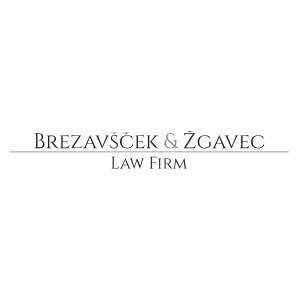Best Natural Resources Lawyers in Slovenia
Share your needs with us, get contacted by law firms.
Free. Takes 2 min.
Or refine your search by selecting a city:
List of the best lawyers in Slovenia
About Natural Resources Law in Slovenia
Natural resources law in Slovenia encompasses a wide range of legal regulations and policies aimed at managing and protecting the country's abundant natural resources, such as forests, water, minerals, biodiversity, and agricultural lands. Slovenia is known for its diverse ecosystems, which include alpine, Karst, Pannonian, and Mediterranean areas, making it rich in natural assets that require sustainable management. The Slovenian government, along with the European Union's directives, emphasizes balancing ecological preservation with economic development, ensuring that natural resources are utilized responsibly.
Why You May Need a Lawyer
Individuals and businesses may require legal assistance in the field of natural resources in Slovenia for various reasons. Common situations include:
- Compliance with environmental regulations and permits, especially for construction and industrial projects.
- Resolving disputes over land use, water rights, or resource extraction activities.
- Negotiating and drafting contracts related to the sale or lease of natural resource properties.
- Navigating the regulatory framework for renewable energy projects, such as wind or solar farms.
- Addressing issues related to biodiversity conservation and the protection of endangered species.
- Understanding the implications of EU laws on local natural resources management.
Local Laws Overview
Slovenian natural resources law is comprehensive and influenced by both local and EU regulations. Key aspects include:
- Environmental Protection Act: This act lays down basic principles for environmental protection, including pollution control, waste management, and sustainable use of resources.
- Water Management Act: Governs the use and protection of water resources, focusing on sustainable management and prevention of water pollution.
- Forestry Act: Regulates forest management, ensuring sustainable logging practices and preservation of forest biodiversity.
- Agricultural Land Act: Handles issues related to agricultural land use, with an emphasis on preserving agricultural potential and rural development.
- Biodiversity Conservation Strategy: Aligns with EU directives to ensure the conservation of natural habitats and species.
Frequently Asked Questions
1. What are the key agencies involved in natural resources management in Slovenia?
The Ministry of the Environment and Spatial Planning, the Slovenian Water Agency, and the Slovenian Forest Service are key agencies involved in natural resources management.
2. How are water rights regulated in Slovenia?
Water usage is regulated by the Water Management Act, which requires permits for significant withdrawals and emphasizes sustainable and equitable use of water resources.
3. Are there specific regulations for renewable energy projects?
Yes, renewable energy projects must comply with environmental impact assessments, zoning laws, and specific regulations that promote sustainable practices outlined in national energy policies.
4. How does Slovenia address environmental damage and pollution?
The Environmental Protection Act and related ordinances impose liabilities for environmental damage and require companies to implement preventive and restorative measures.
5. What are the penalties for illegal resource extraction?
Penalties may include fines, imprisonment, and mandatory restoration efforts, depending on the severity of the violation under the Penal Code and specific acts.
6. How can I contest a decision related to natural resources management?
You can contest a decision by filing an administrative appeal with the competent authority or resorting to judicial review before the Administrative Court.
7. What role do local communities play in managing natural resources?
Local communities are involved through participation in development planning, impact assessments, and local initiatives to promote sustainable use and conservation.
8. Are there any incentives for sustainable practices?
Yes, Slovenia offers subsidies, grants, and tax incentives for adopting sustainable practices, particularly in forestry, agriculture, and renewable energy sectors.
9. How are disputes over land use typically resolved?
Disputes may be resolved through mediation, arbitration, or litigation, with local courts and specialized tribunals handling these issues.
10. Can companies seek legal exemptions from environmental regulations?
Exemptions are rare and require a thorough justification process, demonstrating compliance with EU standards and no significant harm to the environment.
Additional Resources
For those seeking more information or legal advice, the following resources may be helpful:
- Ministry of the Environment and Spatial Planning
- Slovenian Water Agency
- Slovenian Forest Service
- Chamber of Agriculture and Forestry of Slovenia
- Environmental NGOs and advocacy groups
Next Steps
If you need legal assistance in natural resources, consider the following steps:
- Consult with a specialized lawyer or law firm with experience in Slovenian environmental and natural resources law.
- Gather all relevant documents and information related to your case or inquiry.
- Schedule a consultation to discuss your legal options and potential courses of action.
- Engage with relevant governmental bodies to understand regulatory requirements and obtain necessary permits or licenses.
By following these steps, you can ensure that you approach your natural resources-related issues with the appropriate legal guidance and expertise.
Lawzana helps you find the best lawyers and law firms in Slovenia through a curated and pre-screened list of qualified legal professionals. Our platform offers rankings and detailed profiles of attorneys and law firms, allowing you to compare based on practice areas, including Natural Resources, experience, and client feedback.
Each profile includes a description of the firm's areas of practice, client reviews, team members and partners, year of establishment, spoken languages, office locations, contact information, social media presence, and any published articles or resources. Most firms on our platform speak English and are experienced in both local and international legal matters.
Get a quote from top-rated law firms in Slovenia — quickly, securely, and without unnecessary hassle.
Disclaimer:
The information provided on this page is for general informational purposes only and does not constitute legal advice. While we strive to ensure the accuracy and relevance of the content, legal information may change over time, and interpretations of the law can vary. You should always consult with a qualified legal professional for advice specific to your situation.
We disclaim all liability for actions taken or not taken based on the content of this page. If you believe any information is incorrect or outdated, please contact us, and we will review and update it where appropriate.
Browse natural resources law firms by city in Slovenia
Refine your search by selecting a city.
















